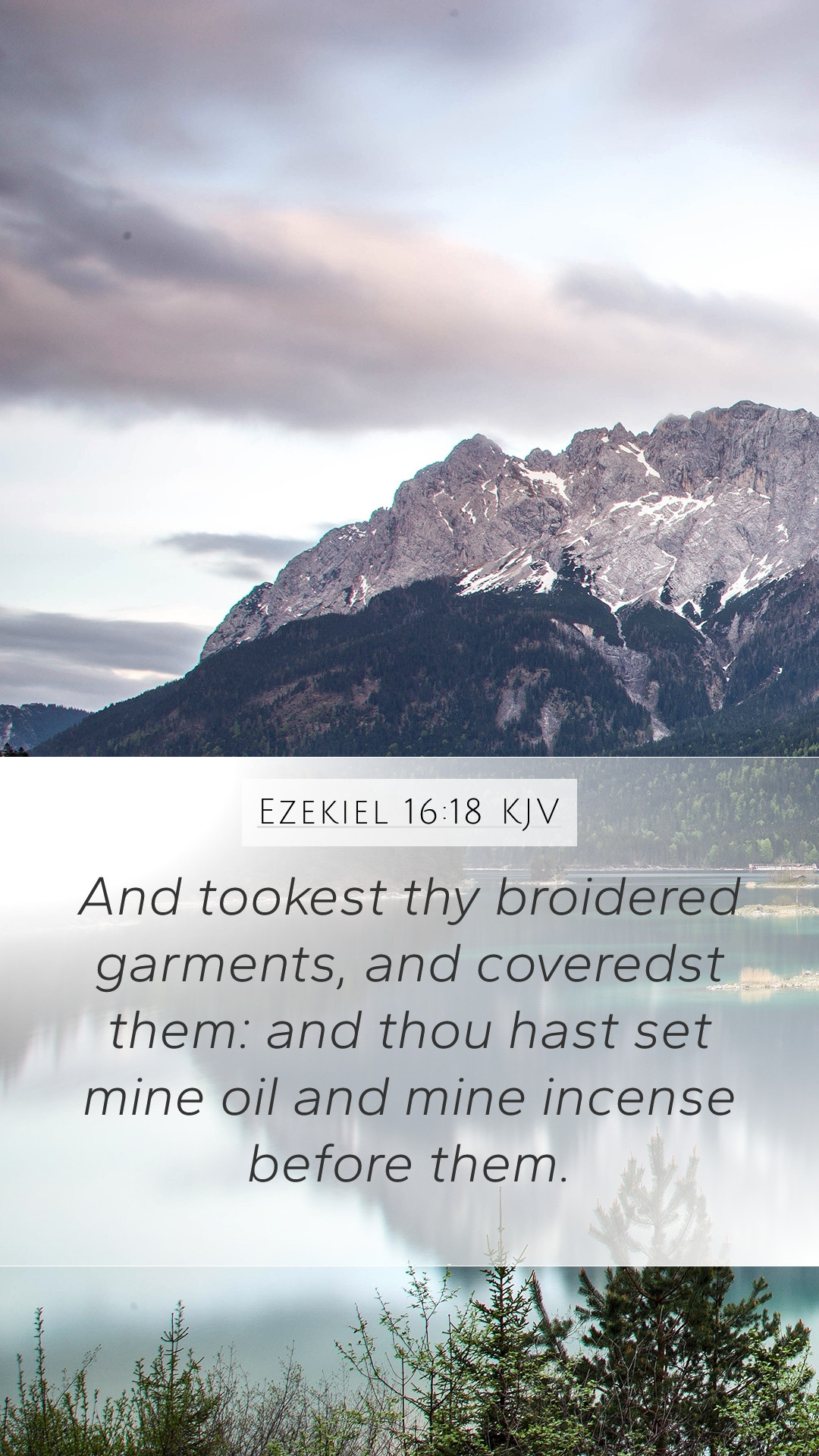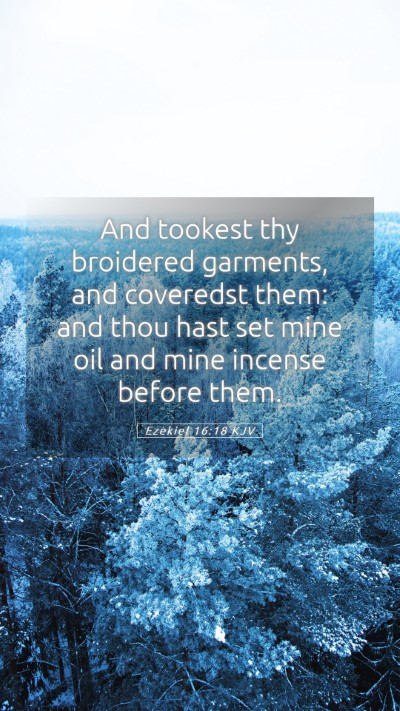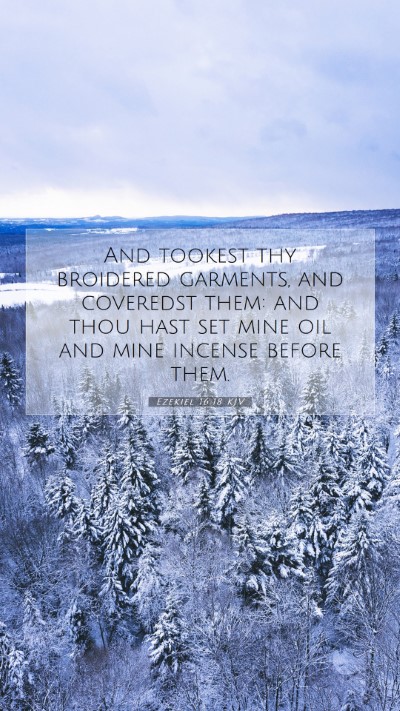Ezekiel 16:18 - Understanding the Meaning of This Bible Verse
Key Verse: Ezekiel 16:18 - "And tookest thy broidered garments, and coveredst them: and thou hast set mine oil and mine incense before them."
Bible Verse Commentary
The verse from Ezekiel 16:18 provides profound insights into the nature of Israel's relationship with God. This verse is located within a larger narrative, wherein God, through the prophet Ezekiel, recounts the unfaithfulness of Israel in abandoning the covenant relationship they had with Him.
Bible Verse Interpretations
In this verse, the imagery of "broidered garments" signifies the beauty and adornment that God provided to Israel. These garments represent the intricate blessings and glory bestowed upon the nation. By choosing to cover their idols with these garments, Israel reflects a tragic betrayal; they are directing the splendor intended for God toward false gods.
Insights from Public Domain Commentaries
- Matthew Henry:
Henry emphasizes the infidelity of Israel, likening their actions to a spouse who, surrounded by gifts of love, chooses to honor someone else. This indicates a deep betrayal, where the beauty of God's provision is misdirected to idols.
- Albert Barnes:
Barnes notes that the “broidered garments” symbolize Israel's beauty given by God, which they tarnished by their actions. He points out that the oil and incense represent the wealth of worship that was meant for God, misallocated to idols.
- Adam Clarke:
Clarke elaborates on the concept of misplaced devotion, interpreting the garments, oil, and incense as elements meant for God’s glory being instead used in idol worship, highlighting the severity of apostasy and its consequences.
Historical Context of the Verse
The backdrop of Ezekiel’s message originates during a period of exile when Israel faced dire consequences for their idolatry. This chapter portrays God’s lament over His chosen people’s rebellion and infidelity. Understanding this context is crucial for scripture analysis.
Understanding Scripture through Symbolism
The symbolism present in this verse is rich and layered. The garments denote the richness of Israel’s heritage and divine favor, while the idolatry is indicative of spiritual blindness and ungratefulness. This duality serves to show how easily people can turn from divine gratitude to worldly pursuits.
Application of Ezekiel 16:18 in Daily Life
For modern readers, interpreting this verse is vital for examining personal faithfulness to God. It poses questions regarding how one might be misdirecting their adoration or resources toward less worthy “idols” in life—be it wealth, status, or other distractions. Reflecting on this verse encourages believers to allocate their offerings of gratitude and service back to God rather than to pursuits that ultimately lead to emptiness.
Importance of Bible Study Resources
Engaging with Bible study groups, online Bible study tools, and biblical exegesis can enrich understanding and foster deeper insights into verses like Ezekiel 16:18. For those seeking to grasp the meaning of Bible verses, it is beneficial to utilize various Bible study guides and lessons that encourage thoughtful engagement with the text.
Related Bible Cross References
- Ezekiel 16:15 - Discussing the same theme of infidelity.
- Jeremiah 2:13 - Declaring God's lament over idolatry.
- Hosea 2:8 - Reflecting the theme of unfaithfulness toward God.
Conclusion
In conclusion, Ezekiel 16:18 serves as a stark reminder of the perils of spiritual unfaithfulness. Both the richness of God's blessings and the gravity of idolatry are poignantly portrayed in this verse. Engaging with its meaning leads to deeper Bible verse understanding and challenges us to reflect on our commitments to faithfulness in our own lives.


